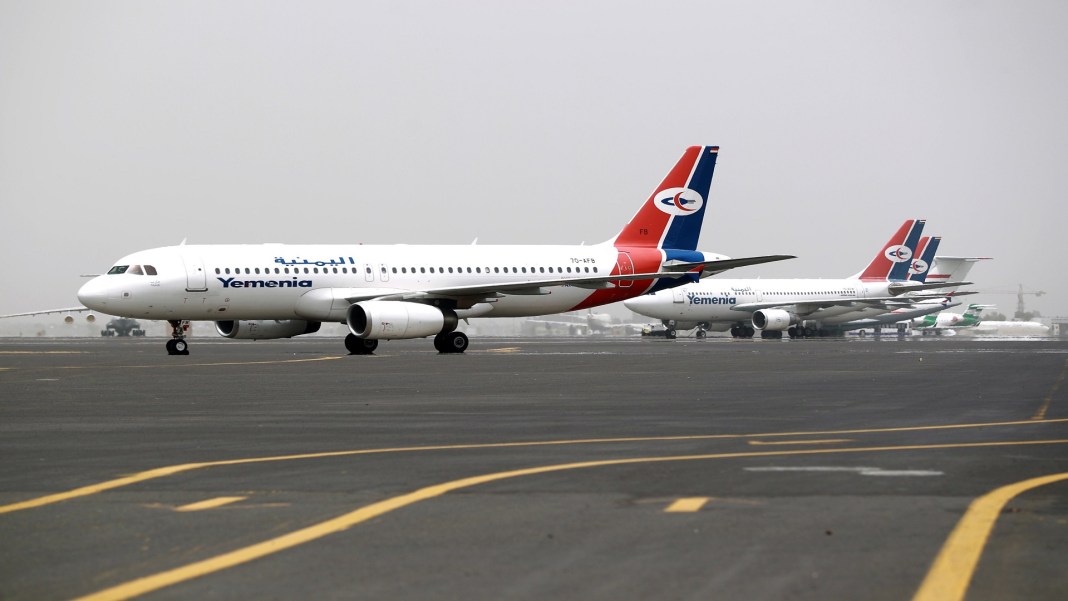In a fresh display of obstinacy against the demands of the Yemeni people and ongoing peace efforts, the U.S.-Saudi-UAE coalition has backtracked on permitting additional flights between Sana'a, Yemen, and Amman, Jordan. This move seems to confirm that the limited flights were merely an attempt to mislead public opinion and cover up the reality of using travel rights as a bargaining chip and means of extortion.
Khaled Al-Shayef, the Director-General of Sana'a International Airport, tweeted that "the flight schedule of Yemenia Airways from Sana'a to Amman for the coming month of August includes only three flights per week instead of the six flights previously agreed upon."
The coalition had previously agreed to increase the number of flights between Sana'a and Amman to six weekly, an addition of three flights. However, authorities at Sana'a airport stated at the time that this number was insufficient to cover the actual need, emphasizing the necessity to lift the siege on the airport completely.
Yet, the coalition's stubbornness led it to even retract this insufficient step, a clear indicator of its insistence on using air travel as a bargaining chip and means of extortion.
Al-Shayef clarified that the reduction in additional flights "will bring back the suffering for those willing to travel to Jordan and will create a great difficulty in obtaining reservations."
Hussein Al-Azi, Deputy Foreign Minister of the National Salvation Government, confirmed at the end of last June that the coalition "refused to implement the agreement of additional flights to Jordan," considering it a "negative message and a step backward."
Al-Azi then stated that the withdrawal from the additional flights reveals that the decision for peace "has not yet been born" among the coalition states.
The issue of Sana'a airport is among the priority issues that peace efforts aim to address due to its humanitarian nature. However, the coalition insists on politicizing this issue, subjecting it to its wishes and political interests, and using it to gain leverage at the negotiating table. It stubbornly refuses to open any other destination for flights, in addition to Jordan, despite the ceasefire agreement stipulating flights to Cairo, and understandings reached to add other destinations.
This stubbornness comes with the direct sponsorship of the United States and Britain and the encouragement of the United Nations, where statements from the international sponsors of the aggression continuously reveal their insistence on continuing the siege and tightening its procedures.







